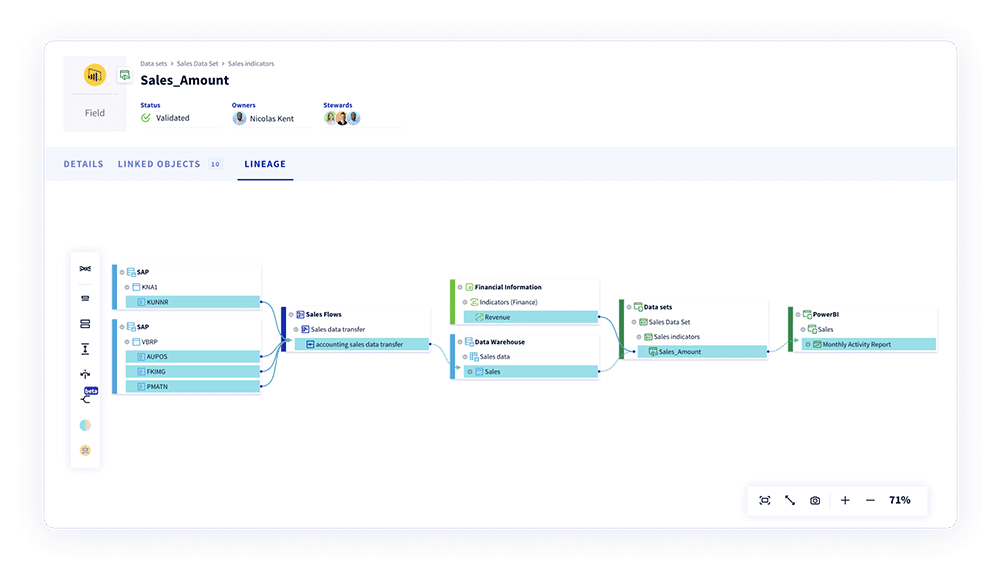
5 benefits of data lineage for your business
Data lineage is essential for organizations relying on complex data ecosystems to drive their decision-making processes.
By understanding the intricate journey of data - from its source to its destination and the transformations that occur along the way - organizations can ensure data accuracy and integrity.
This article highlights the top five benefits of implementing organizational data lineage for data professionals.
What is data lineage?
Data lineage is a comprehensive representation of the lifecycle of data within an organization, capturing its origin, movements, transformations, and dependencies throughout the data pipeline.
By tracing the data's journey from source to destination, data lineage offers a detailed understanding of how it is extracted, transformed, loaded, and integrated into various data warehouses, reporting systems, and data lakes.
This visibility into the data's history, context, and relationships ensures that data professionals can analyze, monitor, and optimize data flow to ensure improved accuracy and efficiency.
Top 5 benefits of data lineage for businesses
Why data lineage is important
In addition to the benefits listed above, there are several reasons why data lineage tracking is crucial for organizations with complex data ecosystems.
- Improved collaboration & communication: Data lineage fosters collaboration among various project stakeholders, including data scientists, analysts, engineers, and business users, by providing a shared understanding of the data landscape. This common view of the data's journey and dependencies facilitates effective communication, leading to more informed and efficient decision-making across the organization.
- Facilitates data discovery: Data lineage helps organizations discover and catalog their data assets more effectively. By tracing the data's journey, data professionals can identify relevant data sources and attributes, streamlining data discovery and improving data accessibility for various business processes.
- Change management: Data lineage is essential for managing changes within the data ecosystem, such as system upgrades, data migrations, and schema modifications. By providing a clear view of data dependencies, data lineage enables organizations to plan and execute changes more effectively, minimizing the risk of unforeseen consequences of down-stream systems and processes.
- Data security & privacy: Data lineage contributes to improved data security and privacy by offering insight into the ways sensitive data is processed, stored, and accessed throughout the organization. This information allows organizations to identify potential vulnerabilities and implement appropriate safeguards to protect sensitive data, ensuring compliance with data protection regulations.
- Provenance & accountability: By maintaining a clear audit trail of data movement and transformations, organizations can trace data back to its original source, ensuring the authenticity of the data and providing a clear view of the parties responsible for any changes or modifications.
In conclusion, implementing data lineage brings numerous benefits to organizations with complex data ecosystems. It improves data quality, reduces technical debt, enhances impact analysis, fosters trust in data products, and ensures regulatory compliance. By leveraging data lineage, advanced data practitioners can optimize their data infrastructure and drive more accurate, informed decision-making processes.
The DataGalaxy difference

DataGalaxy offers intuitive Data Lineage that employs a modern metadata management solution, providing in-depth information about conceptual data on a large scale. Users can now comprehend and track technical and inferential metadata, enabling a more intricate and purposeful data relationship.

